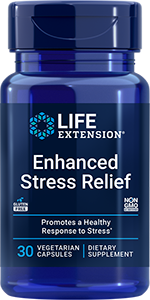| An article published online on September 1, 2009 in the Journal of Gerontology: Medical Sciences reported the results of a study of men and women aged 65 and older which revealed risk factors associated with dying over a 13 year average period. A collaboration of researchers from several American universities evaluated data from 5,888 participants in the Cardiovascular Health Study Cohort, which was designed to determine the risk factors, consequences and history of cardiovascular disease in older men and women from four U.S. communities. Participants were interviewed and examined upon enrollment between 1989 and 1993. The subjects were followed for up to 16 years, during which hospitalizations, cardiovascular events and deaths were documented. Risk factors analyzed in the study included age, gender, income, weight, smoking history, physical activity level, self-rated health history, congestive heart failure history, coronary heart disease history, forced vital capacity (a test of lung function), carotid stenosis, ankle-arm index, systolic blood pressure, diuretic use, apoE E4 allele (which increases the risk of Alzheimer's disease), fasting glucose, serum albumin levels, serum creatinine, C-reactive protein levels, interleukin-6 levels, activities of daily living scores, and cognitive function scores. Over the course of follow-up, 1,099 deaths were attributed to cardiovascular disease, 297 to stroke, 798 to cancer, 392 to dementia, 197 to pulmonary disease, 262 to infection, and 1,203 to other causes. Median survival time was over 80 years for male participants and over 87 years for women. African-Americans, on average, had lower survival than Caucasians over follow-up. Age, smoking status, pulmonary function, weight, cognitive function, congestive heart failure history, coronary heart disease history, self-reported health status, the presence of the apoE E4 allele, and most cardiovascular measures and blood measures were associated with all-cause mortality over follow-up. Interestingly, higher weight had a tendency to be associated with a reduced risk of dying from any cause, and was significantly associated with a lower risk of cardiovascular, dementia, pulmonary and infectious causes of death. When mortality was examined according to cause, few factors other than age were associated with multiple causes of death. Multiple risk factors were related to cardiovascular death, while fewer factors were associated with other causes. The authors remark that, other than age, the risk factor most consistently associated with death across all causes was interleukin-6, a marker of immune function dysregulation which is elevated during chronic inflammation. They note that high interleukin-6 levels have been associated with frailty, total mortality, and disability in other studies. Lung and kidney dysfunction also tended to be related to multiple causes of death. "The findings of the common risk factor interleukin-6 support the concept that there is an underlying age-related state of decline that is not disease specific," the authors write. "The importance of inflammation, cognitive function, kidney, and lung function across causes suggests that these systems have less reserve, decline more strongly with age over time or with risk factor exposure, or simply that these systems have fewer mechanisms for adaptation or repair of injury than do other systems." "In terms of prevention, this study suggests that approaches that target cardiovascular disease and inflammation have the greatest potential to increase longevity," they conclude. |

















